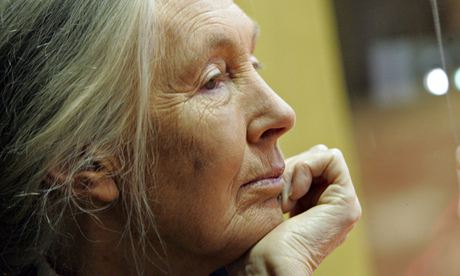
Leading primatologist Jane Goodall has blamed a "hectic work schedule" and her "chaotic method of note taking" for a plagarism controversy surrounding her reissued book.
Speaking ahead of the publication of a revised edition of Seeds of Hope, first published in August 2013, Goodall, said she had learned lessons following reports in the Washington Post last year that at least 12 sections of the book were lifted from other websites including Wikipedia.
"I am not methodical enough, I guess," she said in an interview with online magazine Mosaic. "In some cases, you look at my notebooks, there's no way you can tell whether this is from talking to somebody or whether it was something I read on the internet."
Last year an expert asked by the Washington Post to review Seeds of Hope spotted that some passages in the book echoed various other sources. The paper then published a report that claimed that at least 12 sections in the book were lifted from other websites, and which included an admission from Goodall of her failure correctly to cite her sources.
Examples cited by the paper included a sentence on organic farming that also appears on the website Choice Organic Teas, word for word.
Wikipedia also appears to have been used for a source: talking about the American botanist John Bartram, who lived during the 1700s and shipped seeds to Europe, Goodall informs her readers that "'Bartram's Boxes,' as they came to be known, were regularly sent to Peter Collinson for distribution to a wide list of European clients." The Wikipedia entry on Bartram contains a virtually identical sentence.
Speaking in detail about the row for the first time Goodall told Mosaic that she had been naive.
"I have learned. In the future, I shall be more organised even if I don't have time. I shall certainly make sure I know who said something or what I read or where I read it."
The scientist who came to prominence researching the behaviour of chimpanzees insisted she had not intentionally tried to pass off anyone else's words as her own. "I don't think anybody who knows me would accuse me of deliberate plagiarism," she added.
In the revised edition of Seeds of Hope, to be published this month [April], Goodall said she had made minor changes to the text to address the book's critics and added a lengthy notes section. "I don't think a book has ever been more researched than this one. The notes at the end are about as long as the book."
And she claimed the controversy had turned out to be a "godsend."
"I am really happy for the sake of the plants that we've got it right now. I feel this is a book we can really be proud of now."

